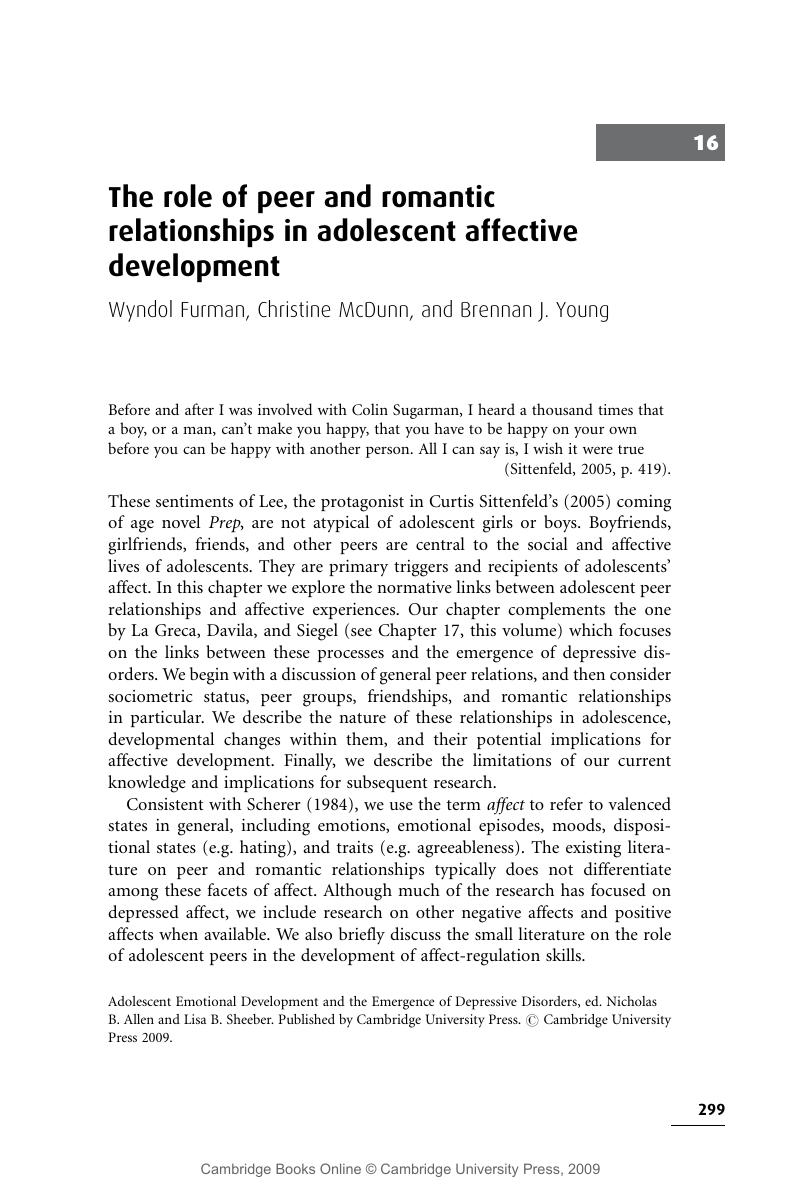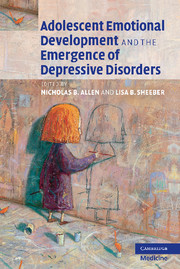Book contents
- Adolescent Emotional Development and the Emergence of Depressive Disorders
- Adolescent Emotional Development and the Emergence of Depressive Disorders
- Copyright page
- Dedication
- Contents
- Contributors
- Acknowledgments
- 1 The importance of affective development for the emergence of depressive disorders during adolescence
- 2 The daily emotional experience of adolescents: are adolescents more emotional, why, and how is that related to depression?
- 3 Epidemiology of mood disorders during adolescence: implications for lifetime risk
- 4 Pubertal development in early adolescence: implications for affective processes
- 5 Pubertal and neuroendocrine development and risk for depression
- 6 Mapping brain maturation and sexual dimorphism in adolescence
- 7 Neurobiological processes in depressive disorders: links with adolescent brain development
- 8 The development of executive cognitive function and emotion regulation in adolescence
- 9 Cognitive factors in depressive disorders: a developmental perspective
- 10 Empathy and moral emotions
- 11 Shame, self-criticism, and self-compassion in adolescence
- 12 Temperament in early adolescence
- 13 Temperament and risk for mood disorders in adolescents
- 14 Familial processes related to affective development
- 15 Adolescent mood disorders and familial processes
- 16 The role of peer and romantic relationships in adolescent affective development
- 17 Peer relations, friendships, and romantic relationships: implications for the development and maintenance of depression in adolescents
- 18 Towards a developmental psychopathology of adolescent-onset depression: implications for research and intervention
- Index
16 - The role of peer and romantic relationships in adolescent affective development
Published online by Cambridge University Press: 14 September 2009
- Adolescent Emotional Development and the Emergence of Depressive Disorders
- Adolescent Emotional Development and the Emergence of Depressive Disorders
- Copyright page
- Dedication
- Contents
- Contributors
- Acknowledgments
- 1 The importance of affective development for the emergence of depressive disorders during adolescence
- 2 The daily emotional experience of adolescents: are adolescents more emotional, why, and how is that related to depression?
- 3 Epidemiology of mood disorders during adolescence: implications for lifetime risk
- 4 Pubertal development in early adolescence: implications for affective processes
- 5 Pubertal and neuroendocrine development and risk for depression
- 6 Mapping brain maturation and sexual dimorphism in adolescence
- 7 Neurobiological processes in depressive disorders: links with adolescent brain development
- 8 The development of executive cognitive function and emotion regulation in adolescence
- 9 Cognitive factors in depressive disorders: a developmental perspective
- 10 Empathy and moral emotions
- 11 Shame, self-criticism, and self-compassion in adolescence
- 12 Temperament in early adolescence
- 13 Temperament and risk for mood disorders in adolescents
- 14 Familial processes related to affective development
- 15 Adolescent mood disorders and familial processes
- 16 The role of peer and romantic relationships in adolescent affective development
- 17 Peer relations, friendships, and romantic relationships: implications for the development and maintenance of depression in adolescents
- 18 Towards a developmental psychopathology of adolescent-onset depression: implications for research and intervention
- Index
Summary

- Type
- Chapter
- Information
- Publisher: Cambridge University PressPrint publication year: 2008
- 13
- Cited by

